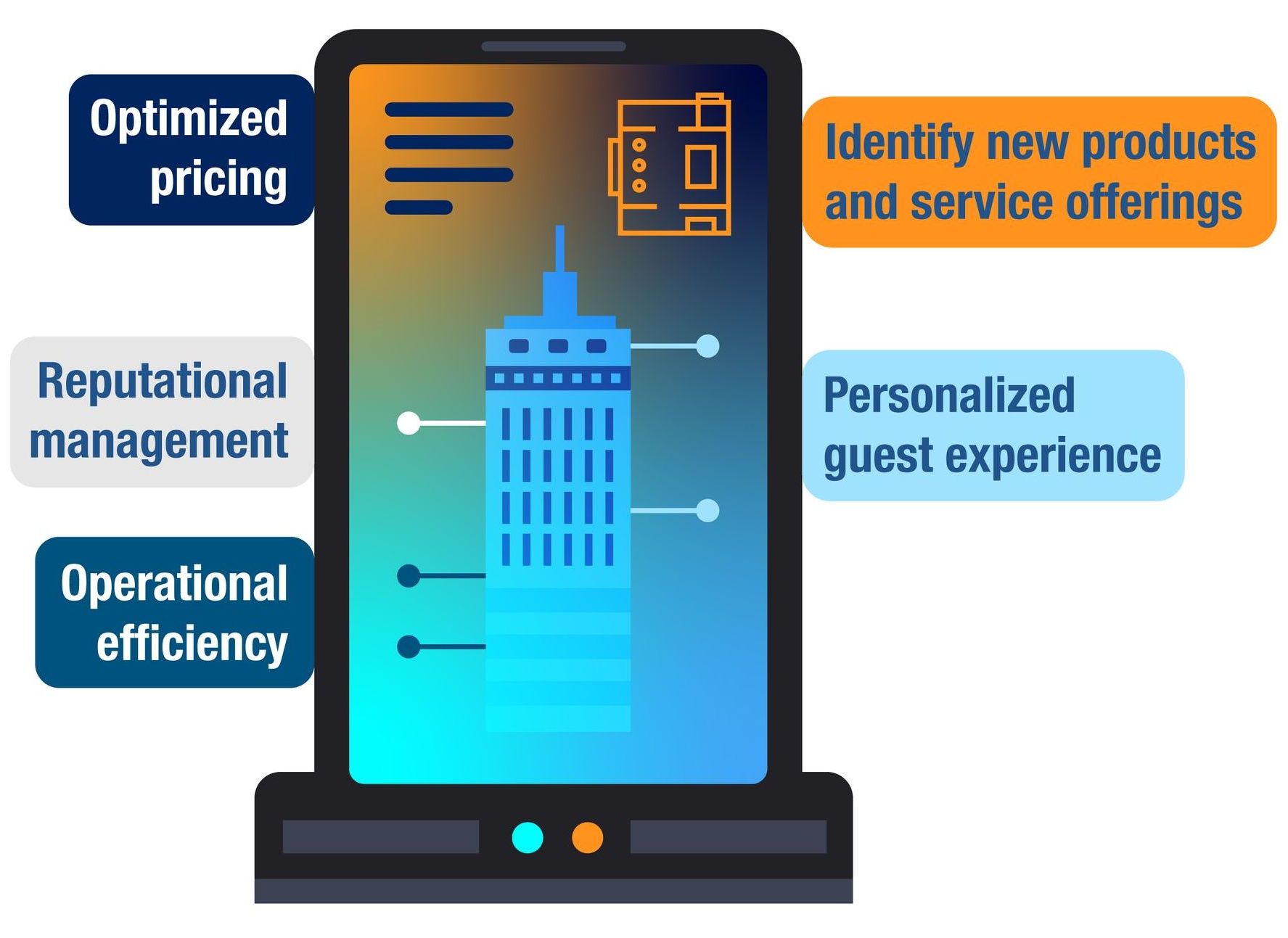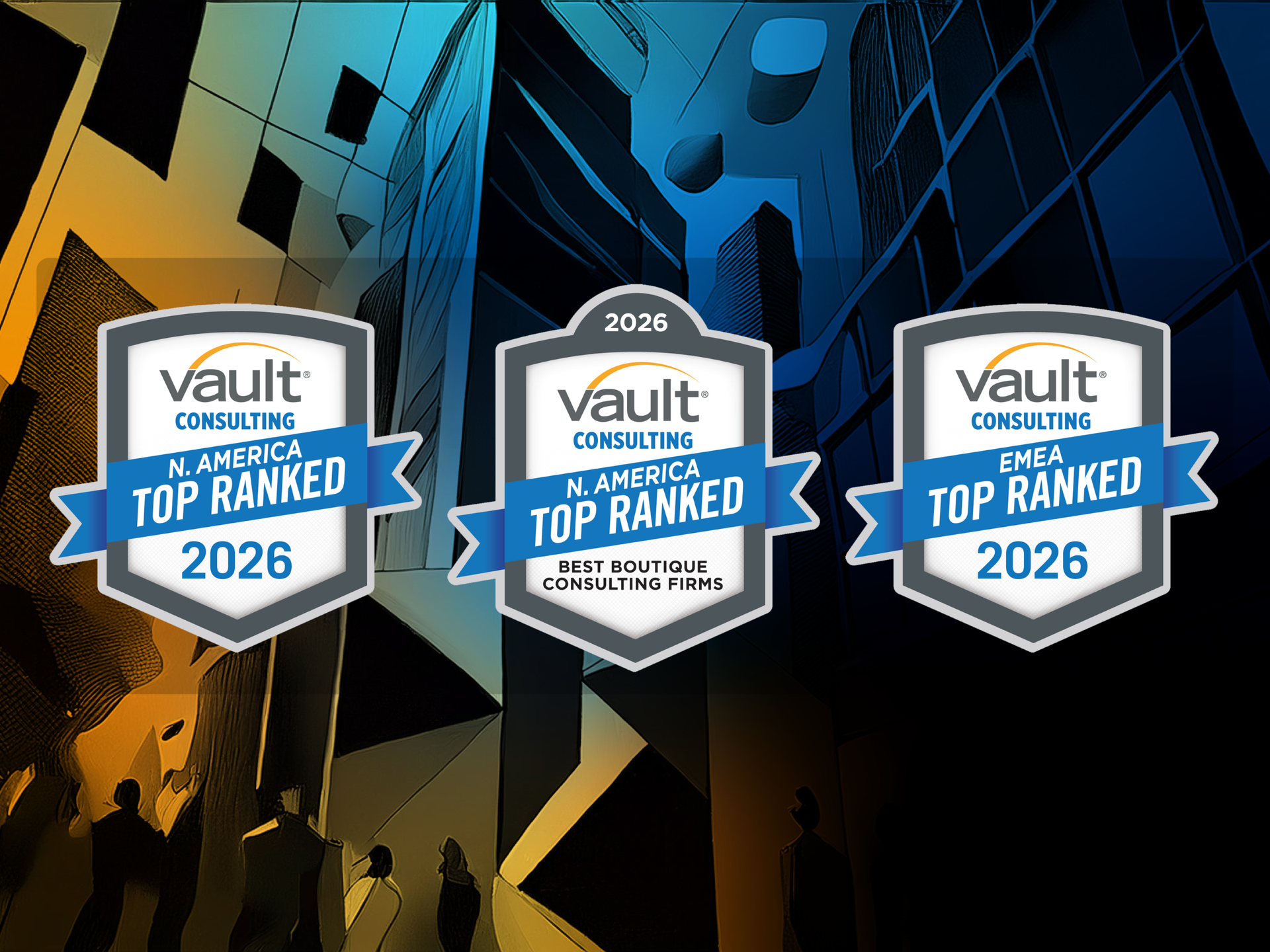Share
In the highly competitive hospitality sector, data analytics is not merely a tool for understanding customer booking trends and room occupancy rates, but a necessity. As technology continues to evolve, data analytics empowers businesses to extract valuable insights, identify patterns, make predictions, streamline operations, and enhance tailored guest experiences. Its applications are diverse, providing businesses with the insights needed for informed decision making. In the fast-paced and dynamic world of corporate hospitality, embracing data analytics is currently a strategic requirement for staying ahead in the game.
Notable Data Analytics Use Cases Within the Hospitality Industry

Optimized pricing: Businesses enhance revenue optimization by dynamically adjusting pricing strategies through the application of data analytics. This adaptive approach responds to factors such as demand fluctuations, competitive pricing, local events, and historical data—leading to maximized revenue, particularly during periods of high demand.
Reputational management: Analysis of online reviews and social media feedback provides valuable insights. Businesses uncover prevailing criticisms or compliments, enabling them to enhance services and manage their reputation effectively.
Operational efficiency: Data analytics identifies inefficiencies across operational facets, from housekeeping to food service. Rectifying these shortcomings improves service quality while simultaneously reducing expenses.
Identify new products and service offerings: Monitoring trends and analyzing customer experience and market data helps identify deficiencies in product portfolios. Data analytics empowers businesses to pinpoint fresh offerings, maintain or expand their customer base through offers, and identify potential partners with complementary services.
Personalized guest experience: Hospitality businesses leverage data analytics to tailor experiences based on guest preferences, encompassing room choices, dietary inclinations, preferred activities, and more.
Key Metrics and KPI’s in Hospitality/Hotel Data Analytics
In hotel data analytics, gauging performance hinges on crucial metrics and KPIs. Essential revenue-related metrics like Revenue per Available Room (RevPAR) and Average Daily Rate (ADR) play a pivotal role. Additionally, metrics covering occupancy, demand, customer satisfaction, and operational performance provide valuable insights into the overall functioning of a hotel.
Trends
Increasing usage of Artificial Intelligence (AI)
- Artificial Intelligence and automation are the driving forces of transformation in the hospitality sector. As a result, hoteliers hesitant to adopt data analytics may face challenges integrating these technologies effectively.
- According to Hospitality World, integrating AI into revenue management could boost a hotel's profitability by up to 10%. AI-powered data analytics enable hotels to forecast demand patterns, adjust pricing strategies in real time, and optimize revenue opportunities. Algorithms can analyze historical and real-time data to identify pricing trends, competitor rates, and market demand fluctuations.
The rise of Online Travel Agencies (OTAs)
As the popularity of OTAs steadily increases, and technology platforms maintain their dominant position, the strategic utilization of data analytics through these channels becomes progressively crucial for businesses. In 2021, OTAs demonstrated a robust comeback by recording impressive gross bookings amounting to $65.2B, reaching 82% of pre-pandemic levels. Notably, the significant contribution of OTAs to the total gross bookings in the U.S. for 2021 stood at 24%, an increase from the 20% share observed in 2020. This underlines the growing significance of integrating data analytics strategies within the realm of OTAs and technology-driven platforms for businesses seeking to stay competitive and responsive to market dynamics.
The Role of Data Analytics in Hospitality: Marriot International, Inc
Implementation of a revenue management system
Investing over $50M in its Revenue Optimizing System (ROS), Marriott International drove the development of a sophisticated tool capable of seamlessly integrating data from both internal and external sources. This system utilizes real-time analysis and demand forecasting to recommend the best pricing strategies. During the holiday season, when North American consumers exhibit a higher inclination to spend a week in New York, the ROS autonomously adjusts rates. Marriott leverages dynamic pricing automation to optimize profits and ensure sufficient staffing levels.
Partnership with IBM to effectively integrate analytics into decision making
In 2015, Marriott leveraged IBM's cloud-based analytics software, Big Insights, to enhance digital services for clients and extract insights from their global properties. In migrating core IT systems and applications to IBM's public cloud platform, Marriott achieved efficient analysis of early-stage data trends, facilitating the expansion of global services.
The group expanded its collaboration with IBM to enhance the Marriott Bonvoy platform—the industry's largest loyalty program with over 140 million members enjoying a diverse brand portfolio. Members earn points for complimentary hotel stays, travel experiences, and additional perks. Leveraging data and AI, the Bonvoy platform equipped Marriott with more agile targeted marketing, competitive analysis, and personalized customer services.
Conclusion
Data analytics plays a vital role in the hospitality sector, influencing areas such as pricing optimization, operational efficiency, and personalized guest experiences. The increasing dominance of OTAs and the need for AI integration highlight the broader importance of data analytics in adapting to industry dynamics. Overall, data analytics is not just a tool but a significant driver for success in this ever-evolving landscape.
Stax has deep expertise within the hospitality industry, providing invaluable insights to both investors and businesses alike. Project-related experience includes comprehensive market analyses, identifying promising investment opportunities, and delivering data-driven insights. The firm serves a diverse range of investor interests, with a particular emphasis on upstream assets, including input suppliers and manufacturers.
With a profound understanding of the complete hospitality ecosystem, Stax stands as the leading strategy consulting firm for comprehensive market outlooks and stability trends.
Sources
- Atlan. “7 Use Cases of Data Analytics in Hospitality Industry in 2023,” Atlan, Oct. 2023..
- Hollander, Jordan. “Hotel Data Analytics: What You Need to Know About Big Data in Hospitality,” HotelTechReport, May 2023.
- Menze, Jill. “THE STATE OF ONLINE TRAVEL AGENCIES,” PhocusWire, Apr. 2022.
- Mayer, Vinay K. “How AI is shaping the hospitality industry,” The Economic Times, Jul. 2023.
- Woo, Jiwon. “Marriott: Data-driven Customer Experience for Decades at Scale,” Harvard Business School, Oct. 2022.
- Bloomberg, Susan. “Have data, will travel. How Marriott is understanding its customers better,” Adobe, 2023.






